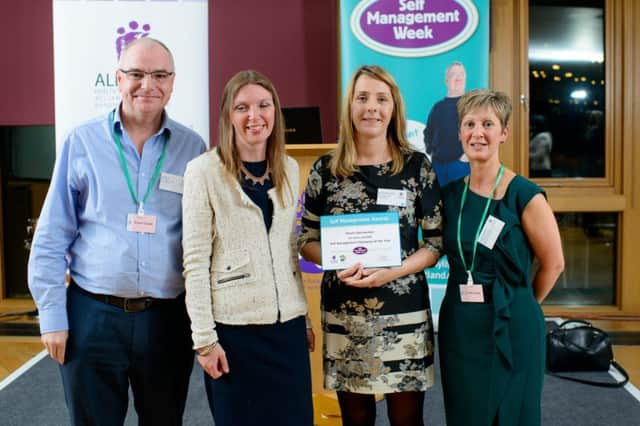Put wellbeing at the centre of our society


Last month we brought together more than 250 people for the Health and Social Care Academy Citizens Wellbeing Assembly. The Assembly heard from Cabinet Secretary Shona Robison, hot on the heels of her announcement at the NHS Scotland annual event that she wants to have a national conversation on the future of health and social care. At the same time the Cabinet Secretary also launched “Our Voice”, an initiative designed to strengthen all our voices in health and social care, and make sure words lead to action and improvement.
There is no doubting the appetite for change in Scotland, and for that change to be shaped not only by politicians and civil servants, but by us all. We all recognise what the Cabinet Secretary told the Assembly; doing more of the same will not address the challenges we face. We have had at least a decade of policy seeking to drive fundamental change in health and social care and, while we have seen some shifts, that change is not happening fast enough, widely enough or radically enough.
Advertisement
Hide AdAdvertisement
Hide Adthe Assembly offered some insight into how we might move from conversation about change, to creating change together, so that the way we address our health and wellbeing is transformed.
Participants were very clear that the discussion needs to be about “wellbeing”, rather than about “health and social care”. As Oliver Escobar, Co-Director of What Works Scotland, said, this is not simply about how we design services, but rather about asking the big questions about what kind of society we want.
The debate echoed, too, the messages of the Enabling State from Carnegie UK Trust which foresees a new relationship between the state and citizens; one in which rights, community empowerment and peer-to-peer support are key. All of this is reinforced by our own work on self-management, peer support and enabling communities to own, find and develop their own assets for supporting wellbeing.
The Assembly also reflected on the challenge of having mature discussion about complex issues without debates becoming polarised or politicised. Participants demonstrated their willingness to engage in discussions about tough decisions (for example, a majority voting that the health budget should not continue to be “protected” at the expense of other areas such as social care), and frustration with political debates dominated by waiting time targets to the exclusion of wider issues. Underlying all the discussion was a sense that change requires a substantial shift in culture, and particularly in the balance of power. Initiatives such as “Our Voice” will only succeed if there is equal partnership between all of us, including between people who access services and those who provide them. That shift is happening, not least through recent efforts towards self management, self-directed support and co-production, but is far from the prevailing culture throughout health and social care. People still describe feeling that they do not have parity of esteem alongside health and social care professionals. They highlight, too, the need for people to have the resources to enable them to participate. These are usually modest and may include access to information, communication support, independent advocacy, accessible transport or cover for caring responsibilities. At a Scotland-wide level, too, there must be continued investment in programmes designed to enable shifts in culture and practice, for example initiatives like the Alliance’s People Powered Health and Wellbeing Programme, designed to embed co-production across health and social care.
Lastly, the Citizens Wellbeing Assembly was clear that, while we need to build on what is already good, we also need to embrace truly transformative change and this requires a collective approach. The Alliance established the Health and Social Care Academy precisely to support the radical thinking that the Cabinet Secretary has called for, and to enable this to be driven by all those with a stake in our wellbeing by thinking, talking and acting together. As the National Conversation develops, we look forward to continuing to create these opportunities and helping turn words into real change that emerges from, and makes a difference to, lives and communities across Scotland.
• Shelley Gray is Director of Policy and Ian Welsh Chief Executive at the Health and Social Care Academy run by the Health and Social Care Alliance Scotland. It seeks to amplify the voice of lived experience to drive transformative change. The Citizens Assembly will contribute to the national conversation on the future of health and social care, along with its “My Wellbeing, My Future” creative competition, which runs to 17 July.
SEE ALSO